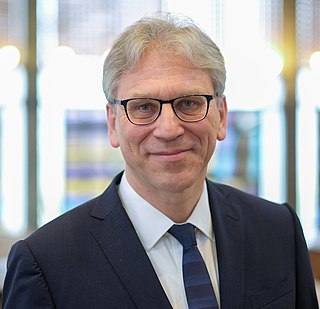
The World Council of Churches (WCC) is a worldwide Christian inter-church organization founded in 1948 to work for the cause of ecumenism. Its full members today include the Assyrian Church of the East, the Oriental Orthodox Churches, most jurisdictions of the Eastern Orthodox Church, the Old Catholic Church, the Lutheran churches, the Anglican Communion, the Mennonite churches, the Methodist churches, the Moravian Church, Mar Thoma Syrian Church and the Reformed churches, as well as the Baptist World Alliance and Pentecostal churches. Notably, the Catholic Church is not a full member, although it sends delegates to meetings who have observer status.

Ecumenism – also called interdenominationalism, or ecumenicalism – is the concept and principle that Christians who belong to different Christian denominations should work together to develop closer relationships among their churches and promote Christian unity. The adjective ecumenical is thus applied to any interdenominational initiative that encourages greater cooperation and union among Christian denominations and churches.

The World Evangelical Alliance (WEA) is an interdenominational organization of evangelical Christian churches, serving more than 600 million evangelicals, founded in 1846 in London, England, United Kingdom to unite evangelicals worldwide. WEA is the largest international organization of evangelical churches. The headquarters are in Deerfield, Illinois, with UN offices in New York City, Geneva, and Bonn. It brings together 9 regional and 143 national evangelical alliances of churches, and over one hundred member organizations. Moreover, the WEA includes a certain percentage of individual evangelical Christian churches. As of March 2021, the Secretary General of the WEA is German theologian Thomas Schirrmacher.
The Middle East Council of Churches (MECC) was inaugurated in May 1974 at its First General Assembly in Nicosia, Cyprus, and now has its headquarters in Beirut, Lebanon. Initially it consisted of three "families" of Christian Churches in the Middle East, the Eastern Orthodox Churches, the Oriental Orthodox Churches and the Evangelical Churches, which were joined in 1990 by the Catholic Churches of the region. It is a regional council affiliated with the mainstream ecumenical movement which also gave birth to the World Council of Churches, of which the MECC is also a member.

Archbishop Anastasios of Tirana, Durrës and All Albania is the Archbishop of Tirana, Durrës and All Albania and as such the primate and Head of the Holy Synod of the Autocephalous Orthodox Church of Albania. He was elected in June 1992. Professor Emeritus of the National University of Athens. Honorary Member of the Academy of Athens. Anastasios is one of the presidents of the Central Committee of the World Council of Churches. He is also the honorary president of the World Conference of Religions for Peace.
Geoffrey Wainwright was an English theologian. He spent much of his career in the United States and taught at Duke Divinity School. Wainwright made major contributions to modern Methodist theology and Christian liturgy, and played a significant role on producing the text Baptism, Eucharist and Ministry, as a member of the Faith and Order Commission of the World Council of Churches (WCC).
Kenneth R. Cracknell was a British theologian who specialised in interfaith dialogue and the Christian theology of religions.

Willem Adolph Visser 't Hooft was a Dutch theologian who became the first secretary general of the World Council of Churches in 1948 and held this position until his retirement in 1966.

Christianity is a minority religion in Sri Lanka. It was introduced to the island in first century. Traditionally, after Thomas the Apostle's visit in Kerala in AD 52, Christianity is said to have been introduced to Sri Lanka because of its close geographical and commercial ties.

The Theological College of Lanka (TCL) is a college that was inaugurated in 1963 by the Anglican Church, the Methodist Church and the Baptist Church in Sri Lanka. Later the Presbyterian Church joined the federation, to educate the new clergy (ministers) and laity in the environment and context of Sri Lanka and their own languages, Sinhala and Tamil. Rev. Basil Jackson, a British Methodist Missionary, became the founding Principal of the college in 1963.. It is believed that language is the vehicle of culture and when Christians begin to think, speak, preach, pray and write in their own languages, they soon become familiar with their cultural values and begin to appreciate them in the practice of their Christian faith. This new step was foreseen by all the churches as an attempt to produce indigenous theology by people who are being educated in Sri Lanka.

Lynn Alton de Silva was a Sri Lankan theologian and Methodist minister. He was the founder and editor of one of the first theological journals on Buddhist-Christian encounter called Dialogue (1961–1981), chief translator for the revision of the Old Testament of the Sinhalese Bible published as New Sinhala Bible (1973–1982), and director of the Ecumenical Institute for Study and Dialogue (EISD) in Sri Lanka (1962–1982). Lynn de Silva is widely regarded as one of the foremost Christian practitioners of Buddhist-Christian dialogue in Sri Lanka, and also as one of the pioneers in this dialogue.

Paulos Gregorios, born Paul Varghese or Vargīsa Pôla, was the first metropolitan of the Delhi diocese of the Malankara Orthodox Syrian Church and served for over two decades.
Stanley Jedidiah Samartha was an Indian theologian and a participant in inter-religious dialogue.

Dr. William Fray Vendley was the Secretary General of the World Conference of Religions for Peace (WCRP). He is a member of its World Council and coordinates the activities and projects of WCRP's Inter-religious Councils in 70 countries and in five regions, including the Africa, Asia Europe, Latin America, and the Middle East. He is a member of the Council on Foreign Relations.

Olav Fykse Tveit is a Norwegian Lutheran theologian and bishop, and the current Preses of the Bishops' Conference of the Church of Norway. He was elected to the post of general secretary of the World Council of Churches on 27 August 2009. He entered office on 1 January 2010, for a proposed term of five years, and was re-elected to a second term in July 2014. He resigned from the post in March 2020, having been elected Preses of the Bishops' Conference of the Church of Norway.
Lynn de Silva's theology began at an early stage in Lynn de Silva's ministry, when his interest in Buddhism and its culture began to increase. He believed that the credibility of Christianity depended on its ability to relate to Buddhism, which was the faith of the majority of the Sri Lankan population. His objective was to develop a richer appreciation of the similarities between Buddhism and Christianity, in particular, to communicate the Christian message in a manner that the Sri Lankan culture understood, and to construct a theology that is focused towards the Buddhist cultural environment. To this end, he used Buddhist concepts to communicate Christian beliefs in a language understood from the Buddhist context, and he aimed at extending Christian theology with Buddhist concepts in order to gain a more thorough understanding of Christianity. In his book The Problem of the Self in Buddhism and Christianity, de Silva states the following:
There is a growing body of opinion within Christianity that its theology is shop-soiled and needs drastic revision in order first, to re-root it in the basic biblical teaching, secondly, to bring it into harmony with new insights and modes of thought coming from other faiths, ideologies and modern science and thirdly, to relate it to social realities... What I have attempted is to help this process of transformation in Christian thinking. However, theological thinking in order to be meaningful and relevant must be contextual. The context of this book is Buddhism.

Tarek Mitri is a Lebanese university professor, independent politician and former government minister.
Hans Ucko is a priest of the Church of Sweden and a member of the World Council of Churches (WCC). He has been extensively involved in interfaith dialog, particularly between Christians and Jews. He has written a number of books on the subject.
Paul David Devanandan (1901–1962), spelt also as P.D. Devanandan or Paul D. Devanandan, was an Indian Protestant theologian, ecumenist, and one of the notable pioneers in inter-religious dialogues in India.

The Reverend Ioan Sauca is the acting general secretary of the World Council of Churches (WCC). He assumed the office on 1 April 2020 after Reverend Olav Fykse Tveit resigned on 31 March 2020. He is to hold the office until the next World Council of Churches (WCC) committee meeting in 2021, was the Deputy secretary general in 2020.












